
You are logged in as
Logout
You are logged in as
Logout
Knowing how the human brain learns best is important for building well-being in our young people.
Last week, our Year 10 cohort had the privilege to listen to world-renown clinical psychologist and author, Andrew Fuller. Andrew has dedicated his professional life to learning about the brain, learning, and resilience. His knowledge and skills were clear as he engaged 220 students for over four hours through getting them to play, think, debate, concentrate and question.
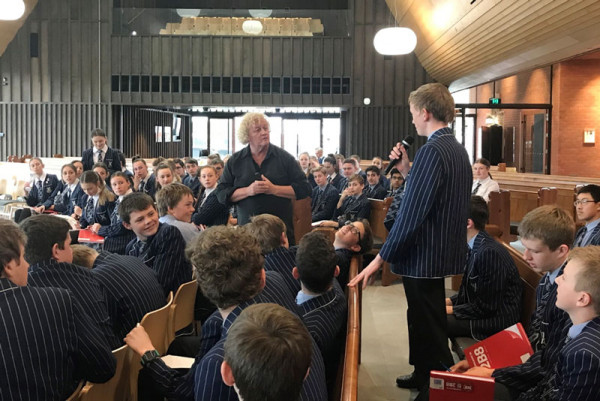
Following Andrew’s suggestion for consolidating information, here are the five main points I took away from this uplifting morning:
To flourish in life, it is important you work out how your brain works. “What are you good at?”, “What do you enjoy?”, and “What do you find easy to focus on?”. Mr. Fuller stressed that building on your strengths goes a lot further in life than remedying weaknesses. In his words, success involves working out what you are good at and doing more of it. To emphasise this, students were introduced to their unique constellation of learning strengths as ways that their brains naturally function. You can find your learning strengths here.
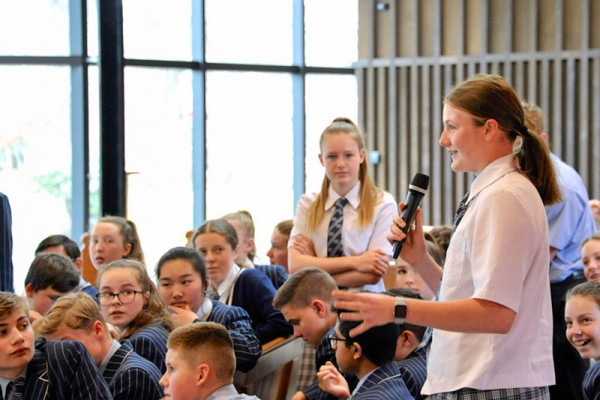
Mr. Fuller believes the basis for success is thinking differently. In an increasingly complex world, those who think deeply, flexibly and creatively will stand out. This point was illustrated when Andrew led students through a series of activities that encouraged them to play with ideas. Through this process, students were shown that for many problems there is no one correct answer. They were also encouraged to listen to perspectives other than their own, make mistakes and rearrange ideas and then connect them in original ways. Mr. Fuller clearly stated that asking questions is a sign of intelligence and is far more important than providing answers (Socrates would agree with this).
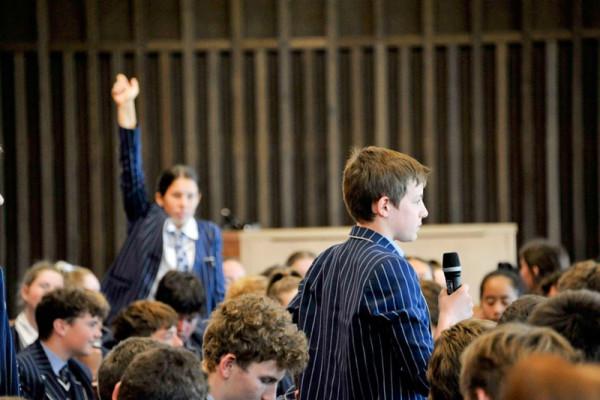
Focus! As the world becomes more technological, the ability to fix our concentration on one thing and think deeply about it is a significant asset. Knowing and having clarity about what the ‘main thing’ is and staying focussed on it is a valuable skill in life.
Mr Fuller explained how our attention is a limited resource; our brains can concentrate in 20-minute bursts and then will start wandering. Interestingly, he noted it takes 23 minutes to refocus from a distraction. Students reflected on how social media has resulted in increased multitasking and task switching (which is cognitively exhausting). He emphasised that humans may be able to multi-task and multi-process, but it is impossible for us to be ‘multi-aware’. Students were encouraged to practice building their concentration by focusing on the things they enjoy and by cultivating activities where they experience ‘flow’.

Intentionality is key. Mr. Fuller believes creating a system and routine for how we manage our daily and weekly schedules is far more important than setting goals. It’s important for students to create the link between the means and the ends. When creating a weekly schedule, students need to ask some important questions. When do I think best? When is the best time for me to do deep work? When will I schedule downtime?
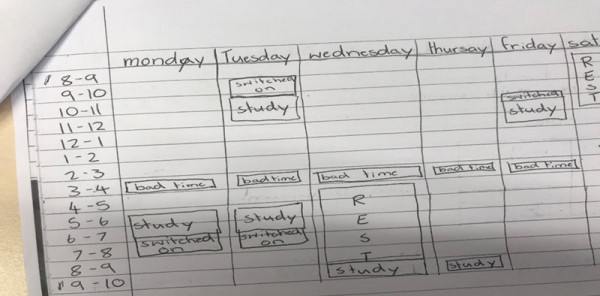
Eating well, sleeping for at least eight hours, managing technology and exercising regularly were highlighted as being important for our brain function. Mr. Fuller recognised that it is not possible to stick to a routine 100% of the time but suggested that if you miss once, don’t miss it twice.
Leading up to the end of year exams, students were given some valuable advice as to how the brain memorises information. Students were encouraged to create visual notes. The keyword here is create. Students should not read notes – this is boring and ineffective. If you want to remember something you need to transform your notes and process them into handwriting, words, pictures, diagrams, lists or mnemonics.
One of the key ways we remember ideas in the long term is on the basis of its similarity to other pieces of information. The way we retrieve information is based on difference. For this reason, Mr. Fuller stressed that Venn diagrams are a particularly effective tool for consolidating information.
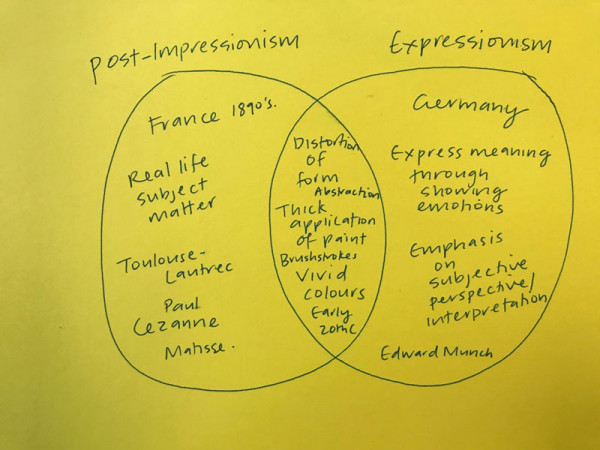
In order to remember key ideas, students were told they need to test themselves weekly and were introduced to the summary hand method, where they recall, in their own words, five key pieces of information that they need to test themselves on to remember an idea.

The learning pyramid was particularly interesting and illustrated to students the most effective ways of remembering and consolidating information. Least effective was listening and reading information and most effective was discussing, practicing and teaching others about information.
Fuller, A. (2016) Unlocking Your Child's Genius: How to discover and encourage your child's natural talents. UK. Ebury Publishing.
Kerry Larby, Head of Well-being and Positive Education
Wednesday 4 September 2019